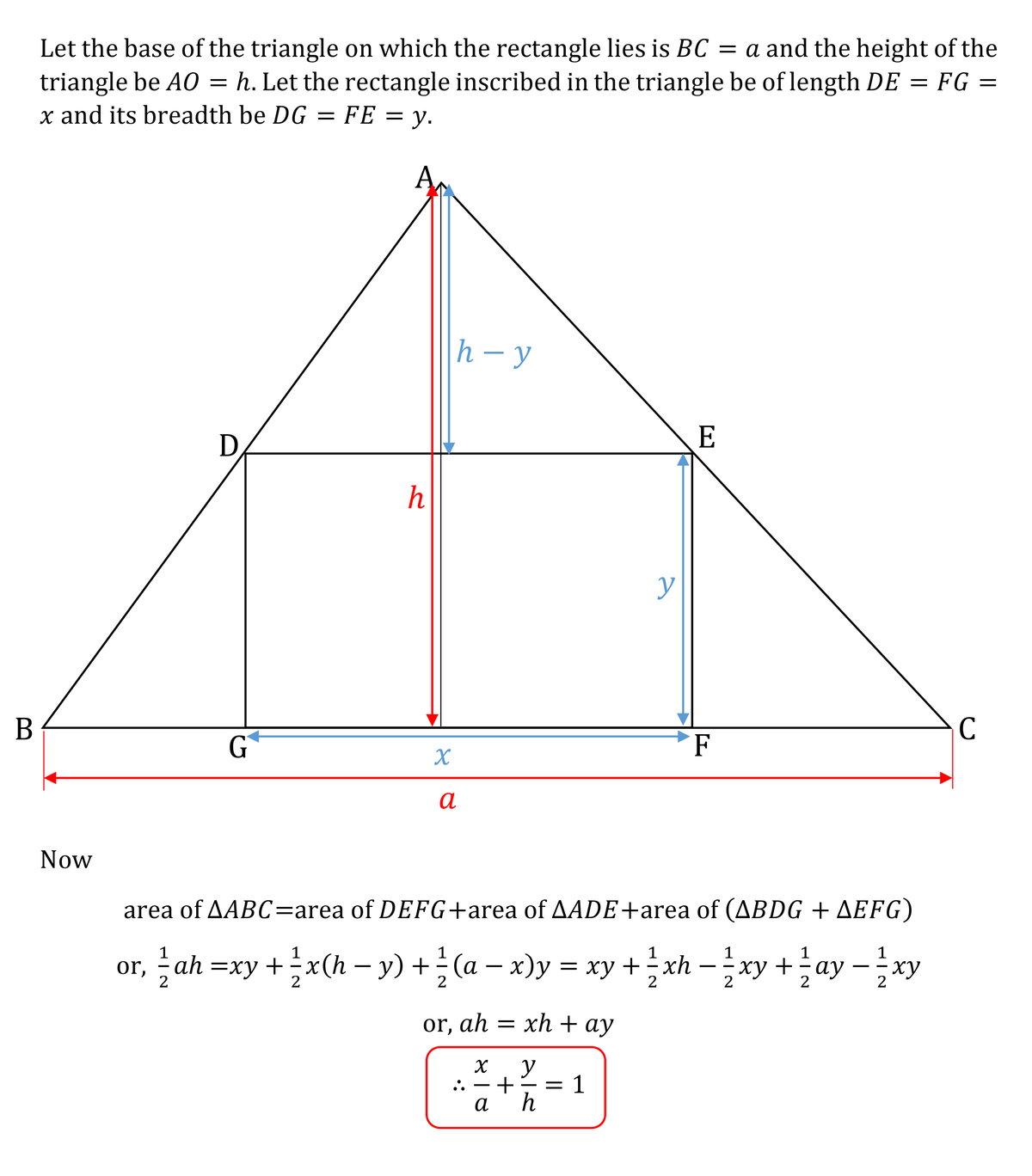Rectangle inscribed in a triangle
In two rectangles are inscribed having lengths and breadths of and units respectively. Find the area of the largest rectangle inscribed in the triangle provided the base on which it stands is unchanged. Enter the largest answer if more than one.
The answer is 6.
This section requires Javascript.
You are seeing this because something didn't load right. We suggest you, (a) try
refreshing the page, (b) enabling javascript if it is disabled on your browser and,
finally, (c)
loading the
non-javascript version of this page
. We're sorry about the hassle.
There is a nice relation between the sides of the rectangle inscribed and the base and height of the triangle. It is given below. So
a
x
+
h
y
=
1
which is analogous to the intercept form of straight line. [Can someone give me an intuition of this?]
So
a
x
+
h
y
=
1
which is analogous to the intercept form of straight line. [Can someone give me an intuition of this?]
According to the question
a 3 5 + h 3 . 5 = 1 or a 3 . 5 + h 3 5 = 1
Solving, h = 4 , a = 6 or h = 6 , a = 4
So for this triangle 4 x + 6 y = 1 or 6 x + 4 y = 1
or , 2 x + 3 y = 1 2 or 3 x + 2 y = 1 2
or, y = 2 1 2 − 3 x or y = 3 1 2 − 2 x
Let A be the area of the rectangle. So A = x y = 2 1 2 x − 3 x 2 or 3 1 2 x − 2 x 2
or, d x d A = 6 − 3 x or d x d A = 4 − 3 4 x
In both cases the 2nd differential will be negative so A is largest when d x d A = 0
So, x = 2 or x = 3
Putting these values in the respective equations of A we get that in both cases A m a x = 6